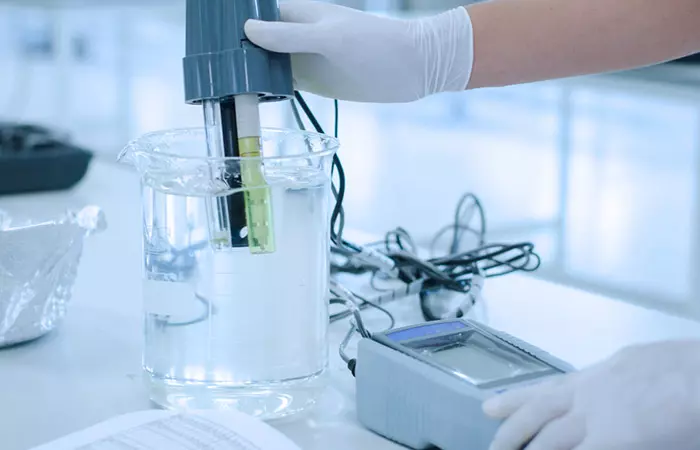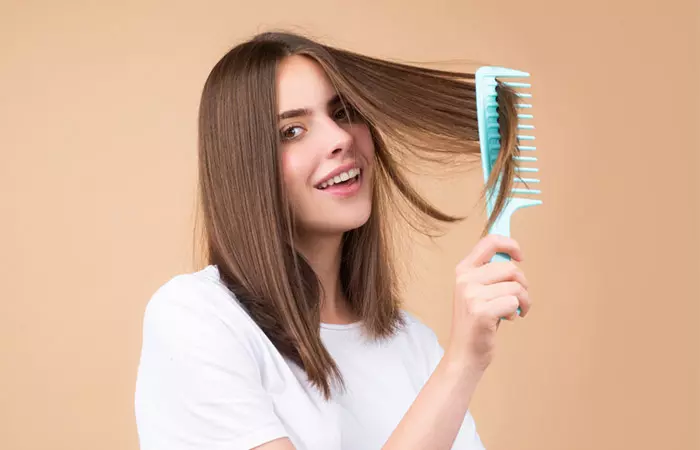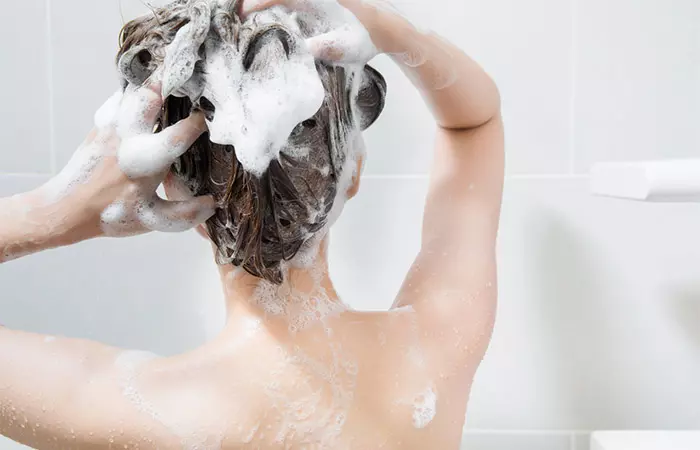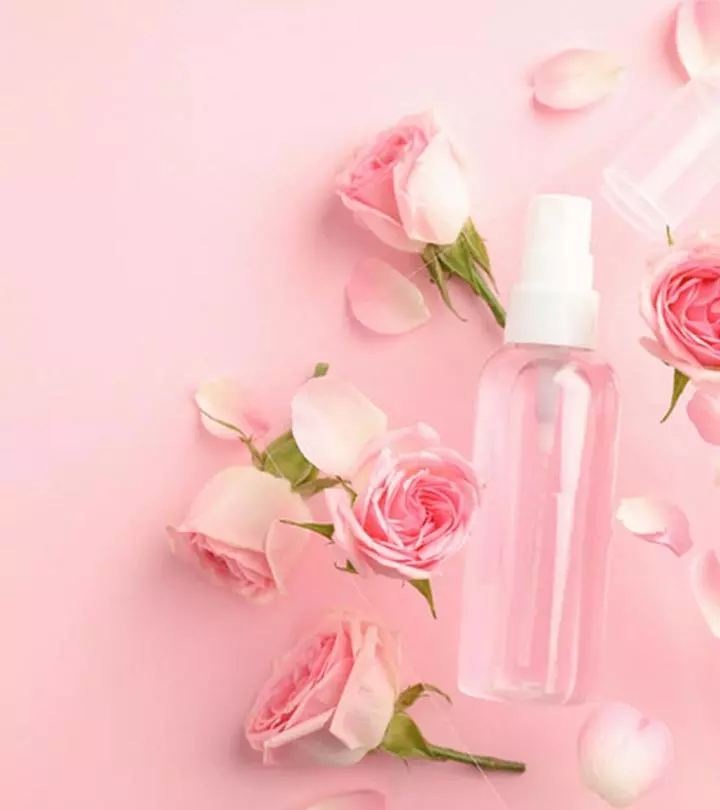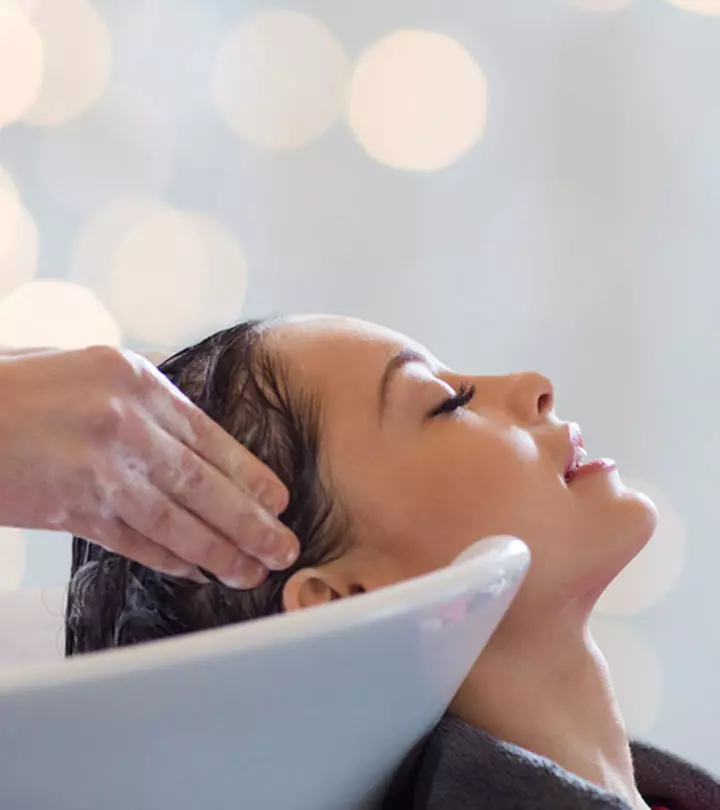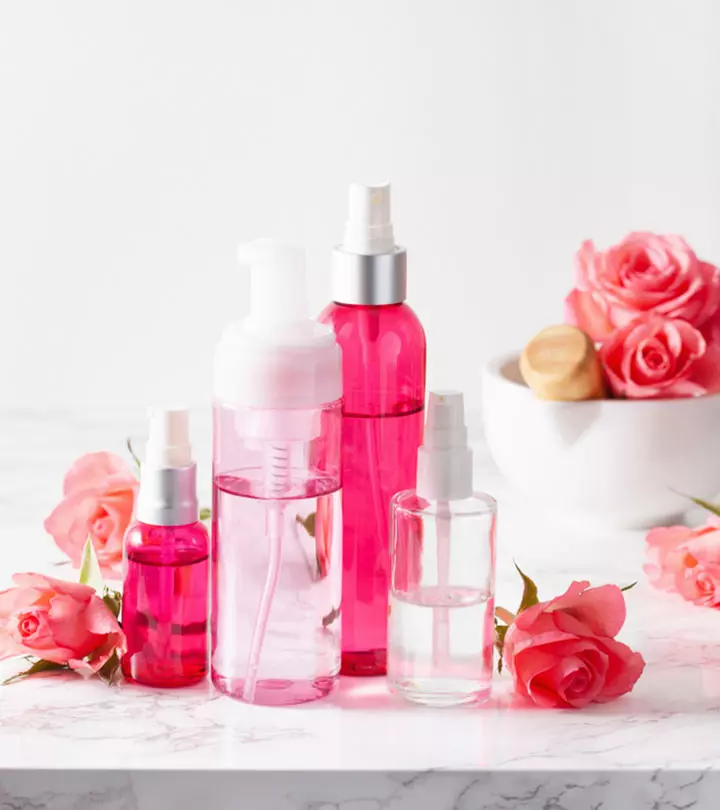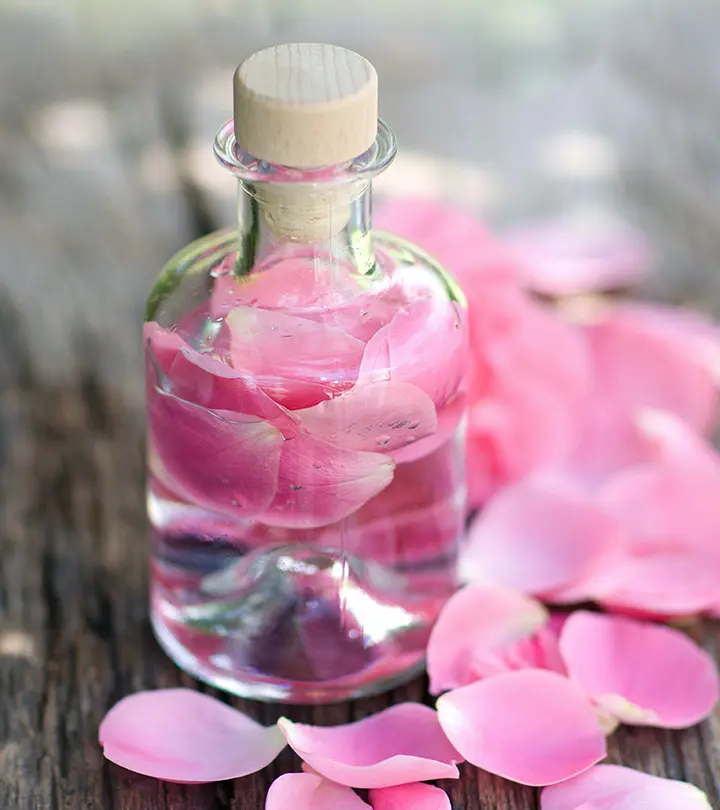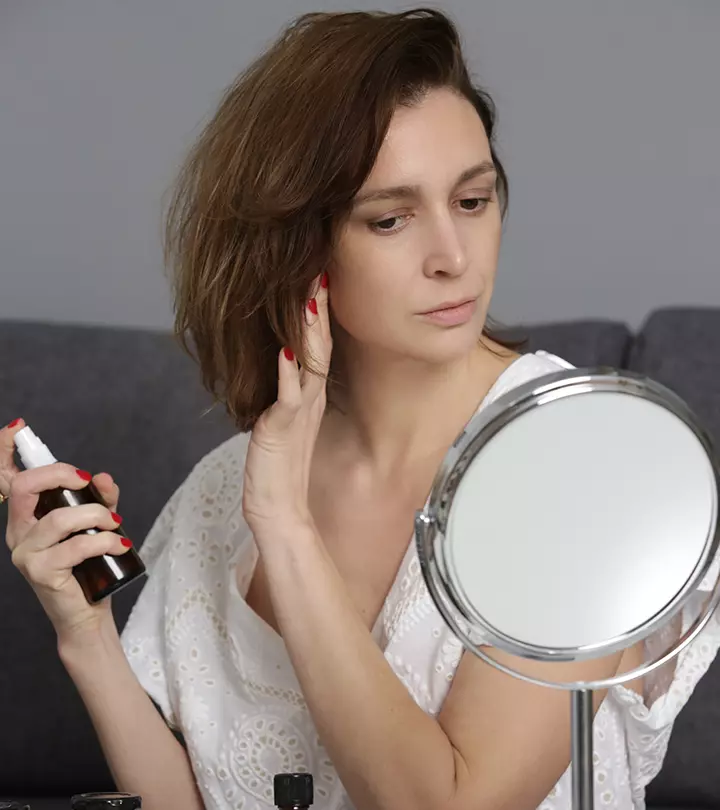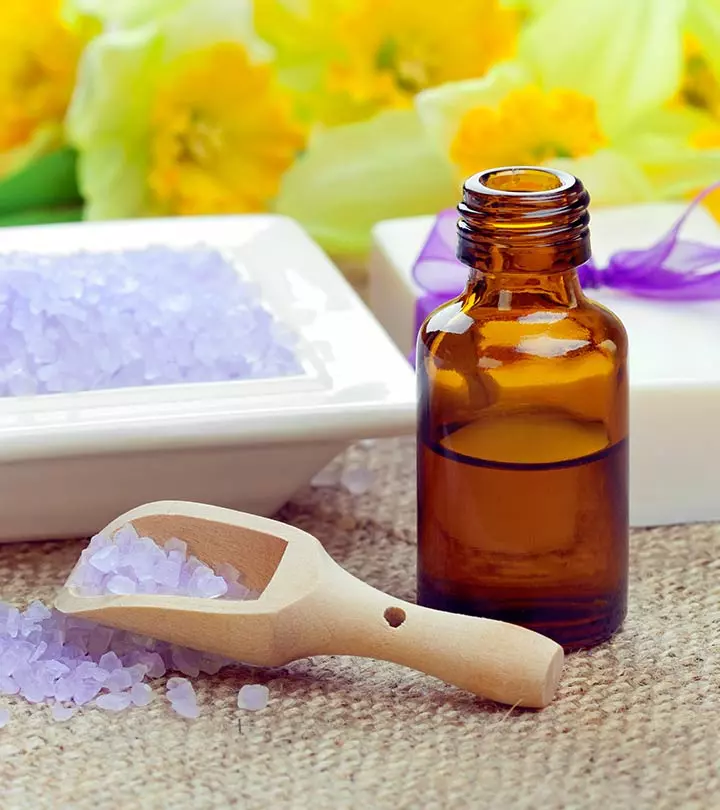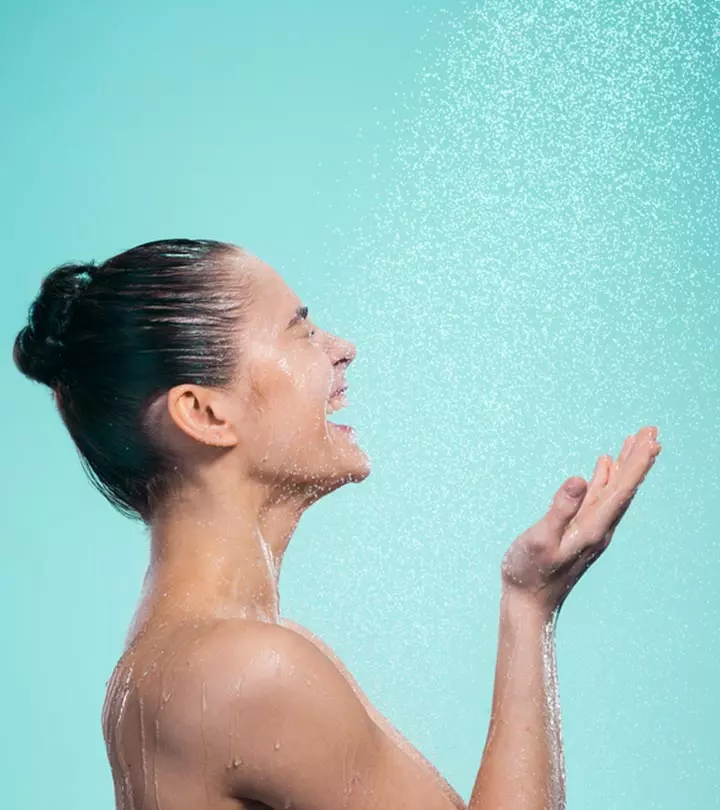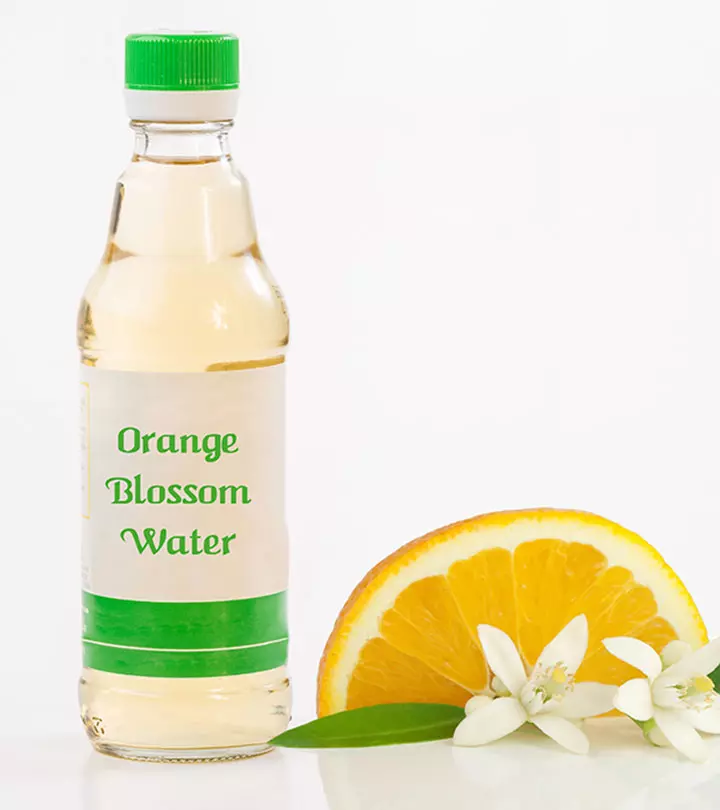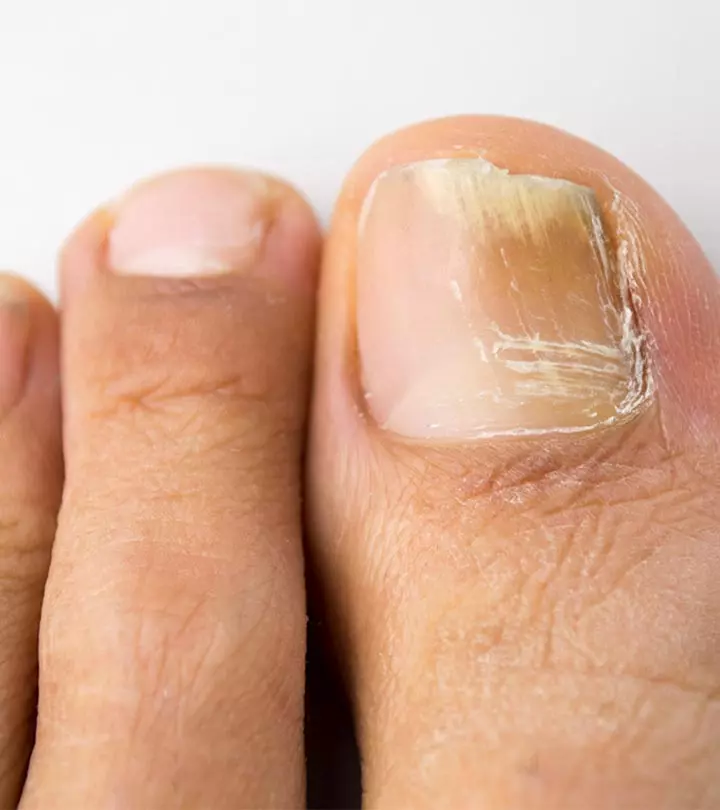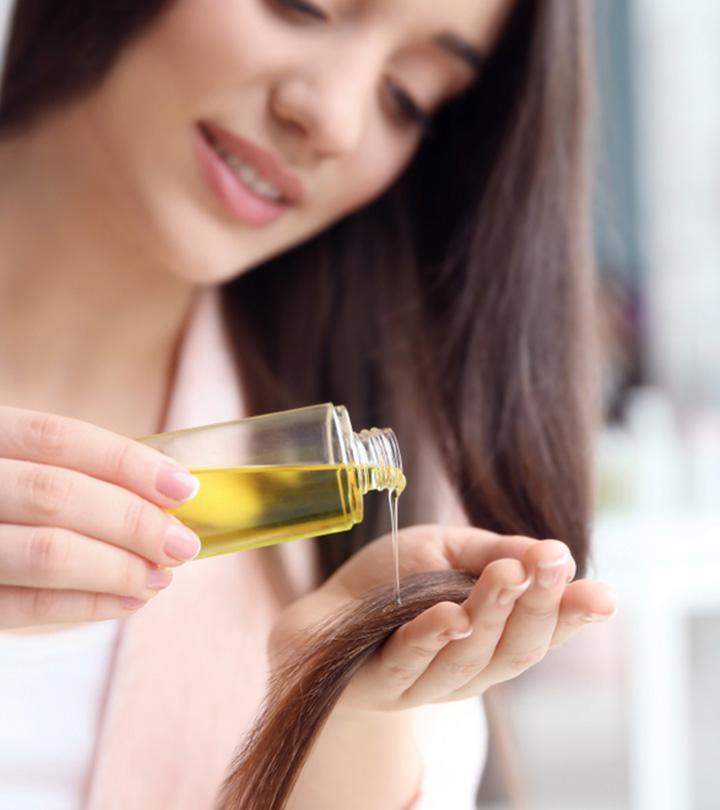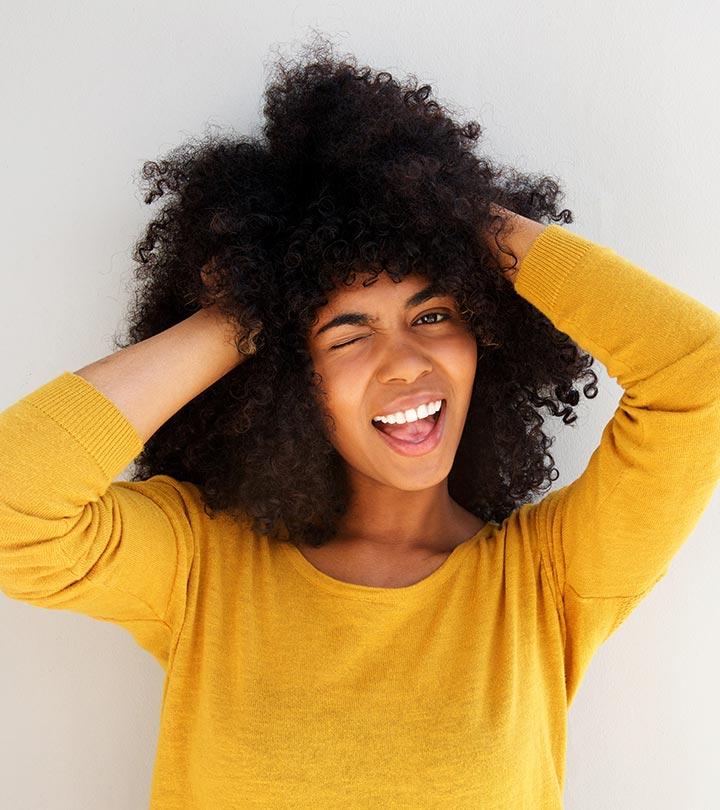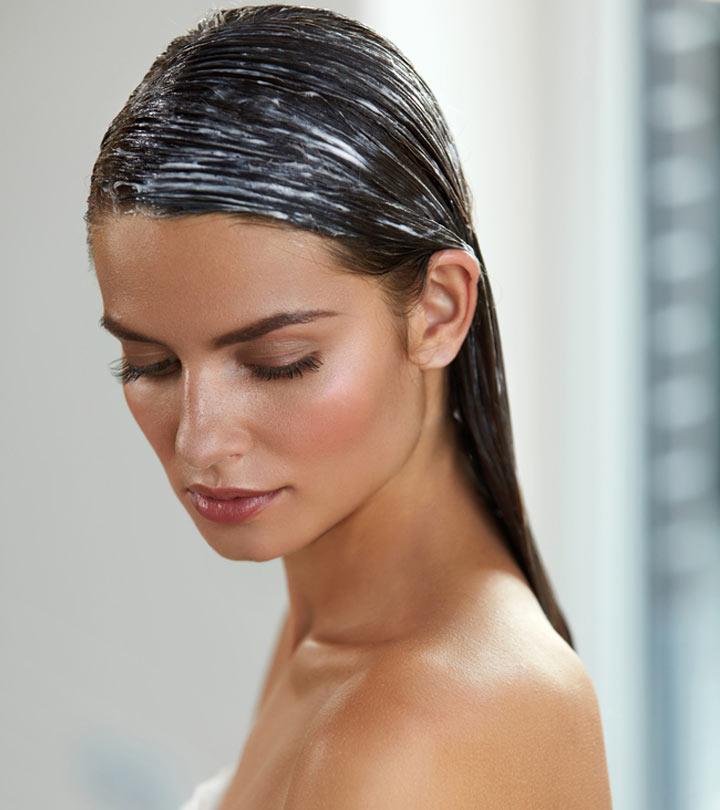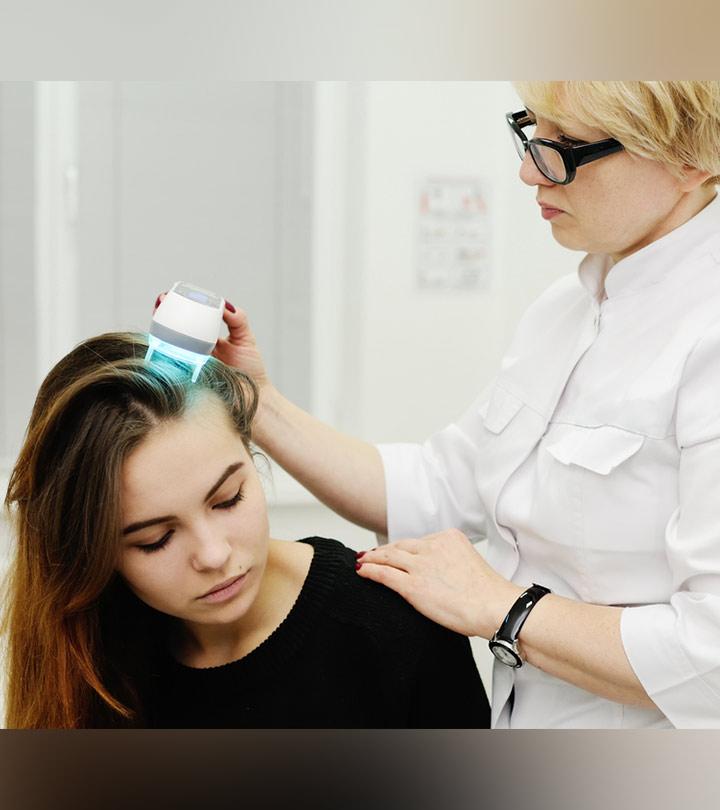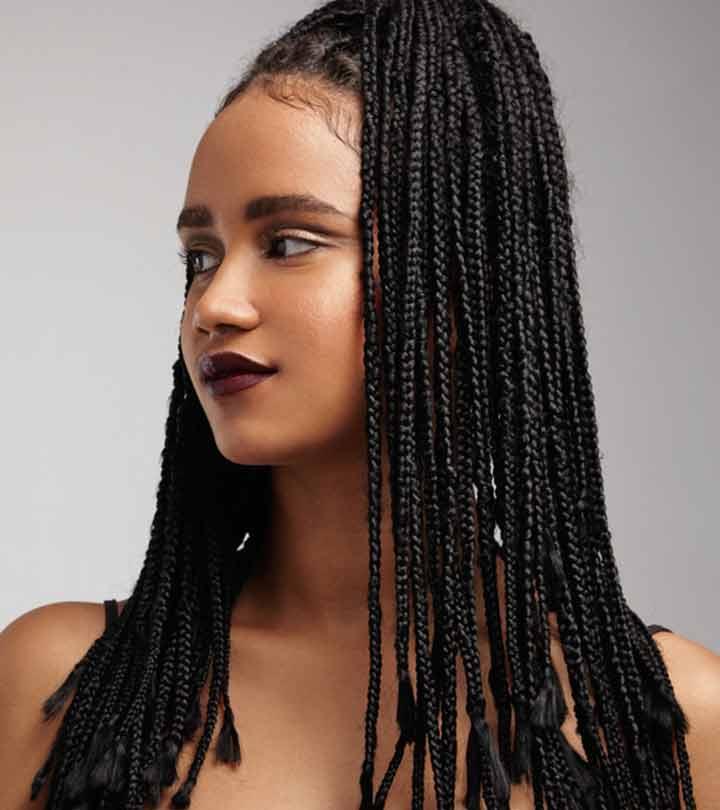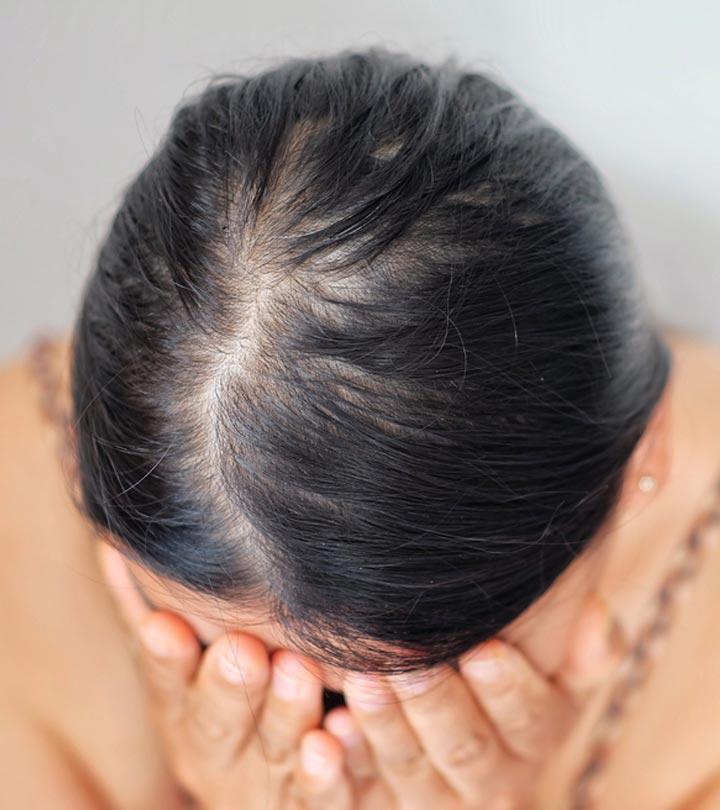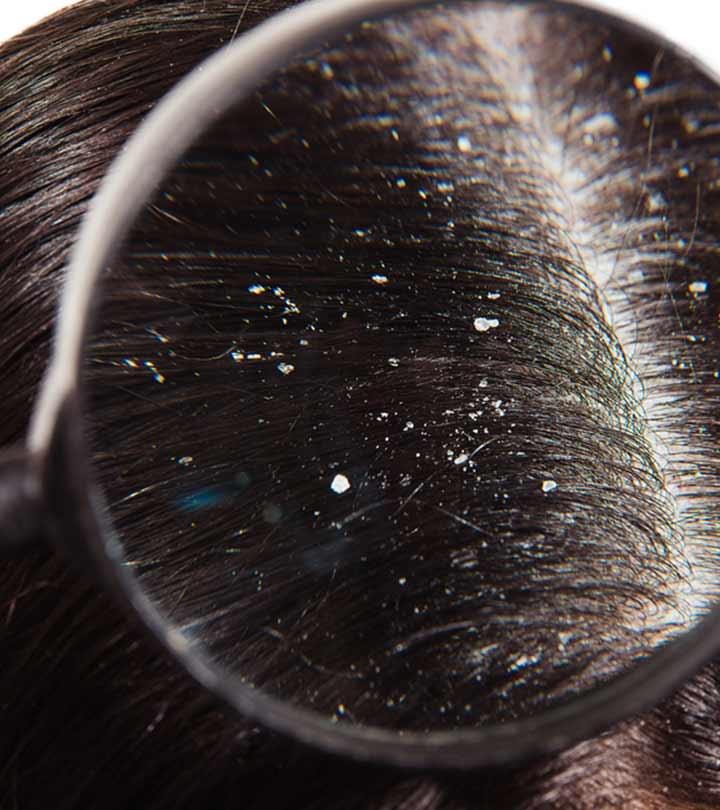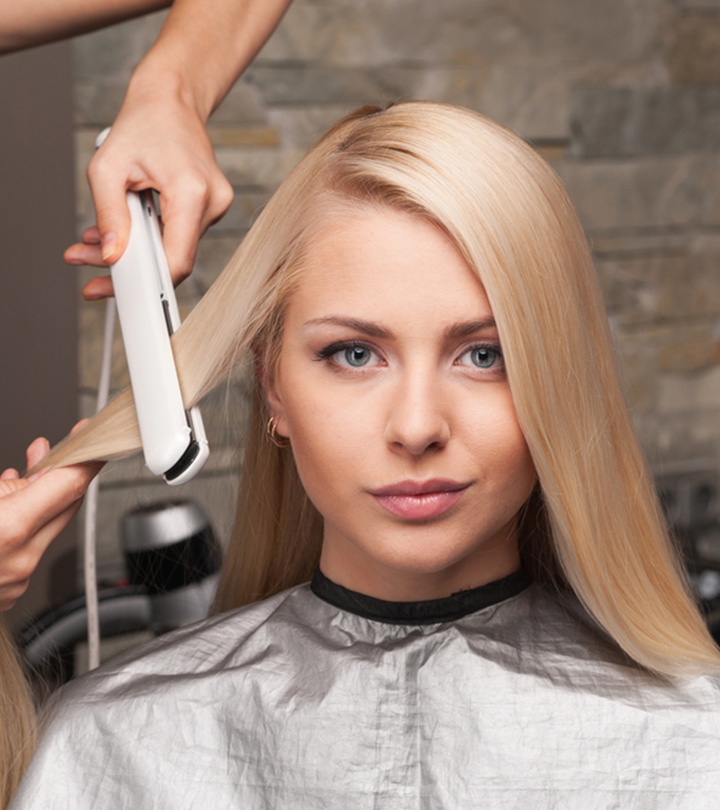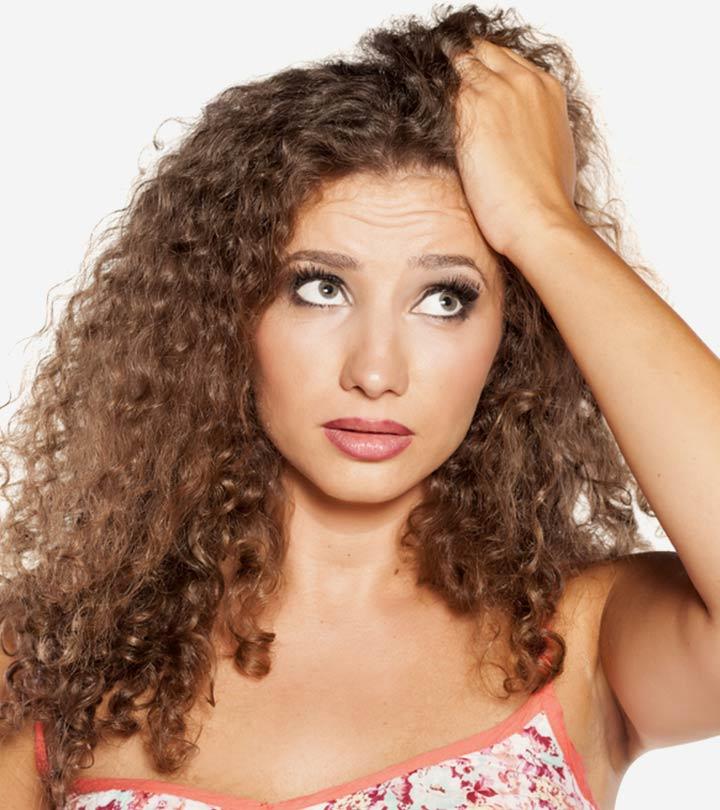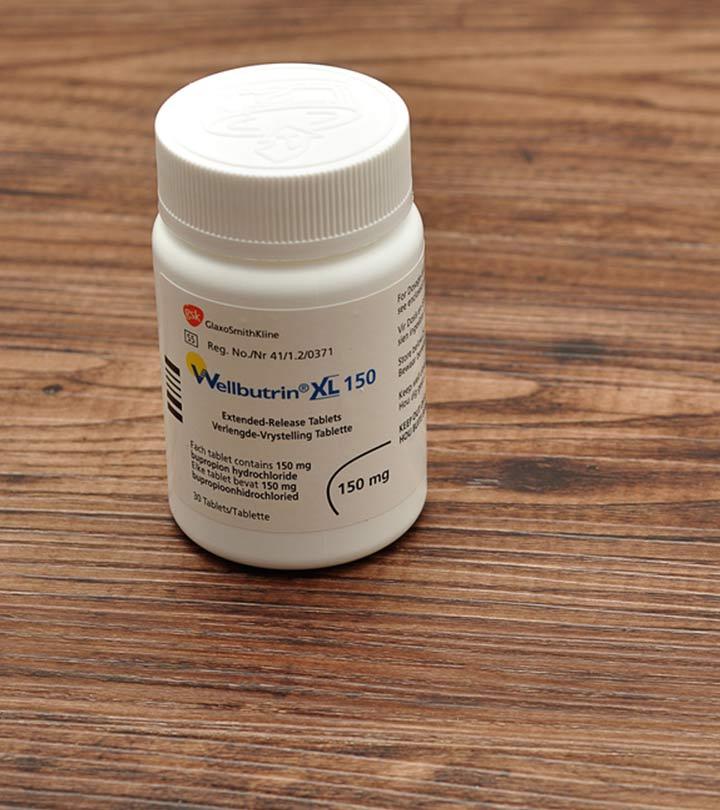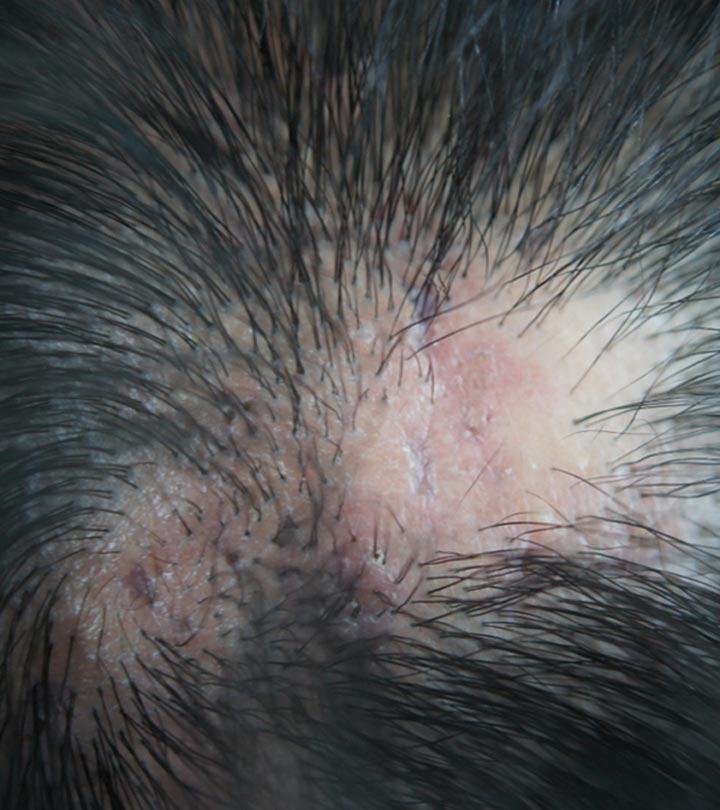Distilled Water For Hair: Benefits And How To Use
Know how to integrate distilled water into your haircare regimen and use it properly.
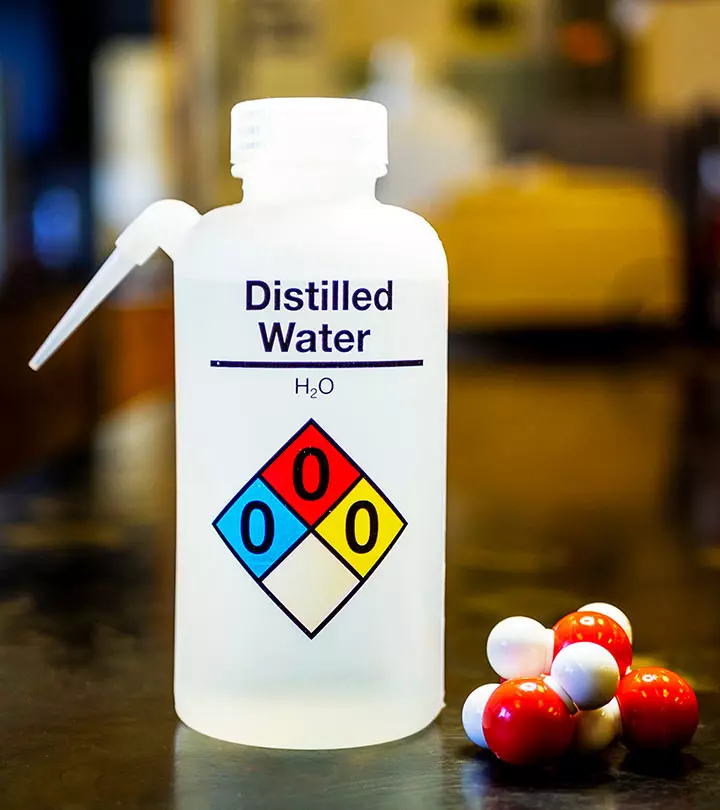
Image: Shutterstock
 Know Your Ingredient: Distilled Water
Know Your Ingredient: Distilled WaterIn This Article
Is Distilled Water Free From All Impurities?
Yes, distilled water is free from all impurities, toxins, chemicals, and minerals. This purified water maintains a pH of 7. It also is devoid of contamination. Distilled water is produced by boiling regular water and condensing the steam back into the liquid. This process also involves a deionization technique that removes all salts and minerals from the condensed liquid. Distilled water may benefit your hair in many ways. We have discussed the benefits in the next section.
 Quick Tip
Quick TipDoes Distilled Water Improve Hair Health?
Many cosmetic products consist of nearly 65-70% of water. Manufacturers of cosmetic products use water (distilled water, to be specific) to potentially avoid allergic reactions in users. Distilled water also acts as a solvent and can dissolve all the active ingredients in the products. It also may boost product absorption when used. Distilled water is one of the purest forms of water that may help promote hair health. Washing your hair with hard water can cause many hair problems. Hard water can deposit minerals like magnesium and calcium in your hair, making your hair dry, frizzy, and fragile. Hair washed with hard water was found to have a rougher appearance and a higher mineral deposition than that washed with distilled water (1). Hard water may also weaken hair's tensile strengthi The measure of the amount of stress a hair strand can withstand when stretched or pulled. It is influenced by aging and nutrition. (2). However, on the contrary, a separate study showed that water hardness had no impact on hair’s tensile strength or elasticity (3). Despite the conflicting research, anecdotal evidence suggests that distilled water can benefit hair in more ways than one. We have listed them below:
- Distilled water removes all product residues from your hair and scalp as it is the purest form of water. It also may soften and smoothen your hair.
- It will not have any damaging effects on your hair or scalp. It improves hair strengthand hair texture and makes your hair more manageable and frizz-free.
- Distilled water can help retain the moisture content of your hair strands. It also keeps the hair ends saturated and prevents split ends.
- Distilled water is known to retain natural scalp oils and maintain hair shine.
- Distilled water retains hair color.
- It is believed distilled water preserves your haircut.
- There is no mineral buildupi The high mineral content found in hard water forms a flimsy layer over the hair and leads to dryness and hair breakage. on the hair or scalp left by distilled water.
A blogger recounted her struggle with unmanageable hair in one of her blogs. She shared her experience of using distilled water as a remedy for it as follows: “I use distilled water and rinse my hair three times with it. Distilled water is soft water, and it brings back the softness and shine and has fewer toxins than faucet water (i).”
Fun Fact
Your hair holds a negative charge and is attracted by the positive metal ions in hard water. This could make all the metal ions and minerals form a barrier and affect your hair treatments. Hence, many companies manufacturing cosmetic products use distilled water in place of normal water.
These are the potential benefits of distilled water on your hair. But how do you make it to wash your hair? Find out in the following section.
How To Make Distilled Water At Home
1. Fill a large steel pot partially with 6-8 cups of water. 2 Set a smaller steel bowl inside the pot, ensuring it does not touch the pot’s bottom. A rack can be used for this purpose. 3. Cover the pot with an upside-down lid and place it on the stove. Turn the heat to medium-high, making sure that the water is at a steady simmer and not boiling. 4. Place some ice cubes on the lid, causing steam to condense into the collection bowl. 5. Turn off the burner once all the water in the larger pot has condensed into the smaller bowl. 6. Carefully remove the collection bowl from the pot. The water in the bowl is distilled and free from salts, minerals, or contaminants.
 Quick Tip
Quick TipHow To Wash Your Hair With Distilled Water
- Warm the distilled water and let it cool. Make sure it is not too hot so that you can ensure the cuticle stays lying down.
- Wash your hair with a mild, sulfate-free shampoo or use any natural shampoo.
- Rinse your hair with distilled water.
- You may also use a hair conditioner in the required quantities and rinse it with distilled water.
- Gently pat your hair dry. Letting your hair air dry works best.
Infographic: 5 Hair Care Benefits Of Distilled Water
Many experts recommend washing your hair with distilled water instead of hard water. We have listed the top five benefits of distilled water that will help your hair become healthier. Check out the infographic below to learn more! Illustration: StyleCraze Design Team
Frequently Asked Questions
How is distilled water different from purified water?
Distilled water is devoid of all impurities and minerals, whereas purified water is free from impurities but retains minerals.
How much distilled water do you need to wash your hair?
You need the same amount of distilled water that you would otherwise normally use while washing your hair.
Can mold grow in distilled water?
Yes, mold can grow in distilled water, as most distillation methods let trace elements and compounds be present in the water.
Is distilled water soft water?
Yes. Distilled water is soft water, as the minerals and impurities are removed via distillation.
Is boiled water the same as distilled water?
No. Boiled water is devoid of bacteria and germs but contains essential minerals. However, distilled water is stripped of all minerals, ions, and microorganisms.
Is rainwater distilled?
It is a pure form of water, but it cannot be considered distilled water as it may contain other substances as it passes through different stages of the water cycle.
Does distilled water dehydrate you?
Yes. Distilled water does not contain the essential minerals and ions like regular water. Therefore, it may not contribute to hair hydration and leave your tresses dehydrated.
Is distilled water good for diabetics?
People with diabetes may consume distilled water as a part of a healthy and balanced diet. However, since it doesn’t contain essential minerals and ions, there might be a risk of dehydration. Consult your doctor before drinking distilled water.
Is distilled water good for acne?
Washing your face with distilled water may help prevent acne. Since it doesn’t contain contaminants, it won’t clog the pores and irritate the skin.
Does distilled water moisturize skin?
Yes. Distilled water may moisturize the skin, just like regular water. It is also widely used in cosmetic formulations like lotions, creams, and toners.
Key Takeaways
- Distilled water is free of impurities, toxins, chemicals, and minerals.
- It removes residues from your hair and scalp while leaving the natural oils unharmed.
- Distilled water may help retain hair color and preserve your hairstyle for longer.
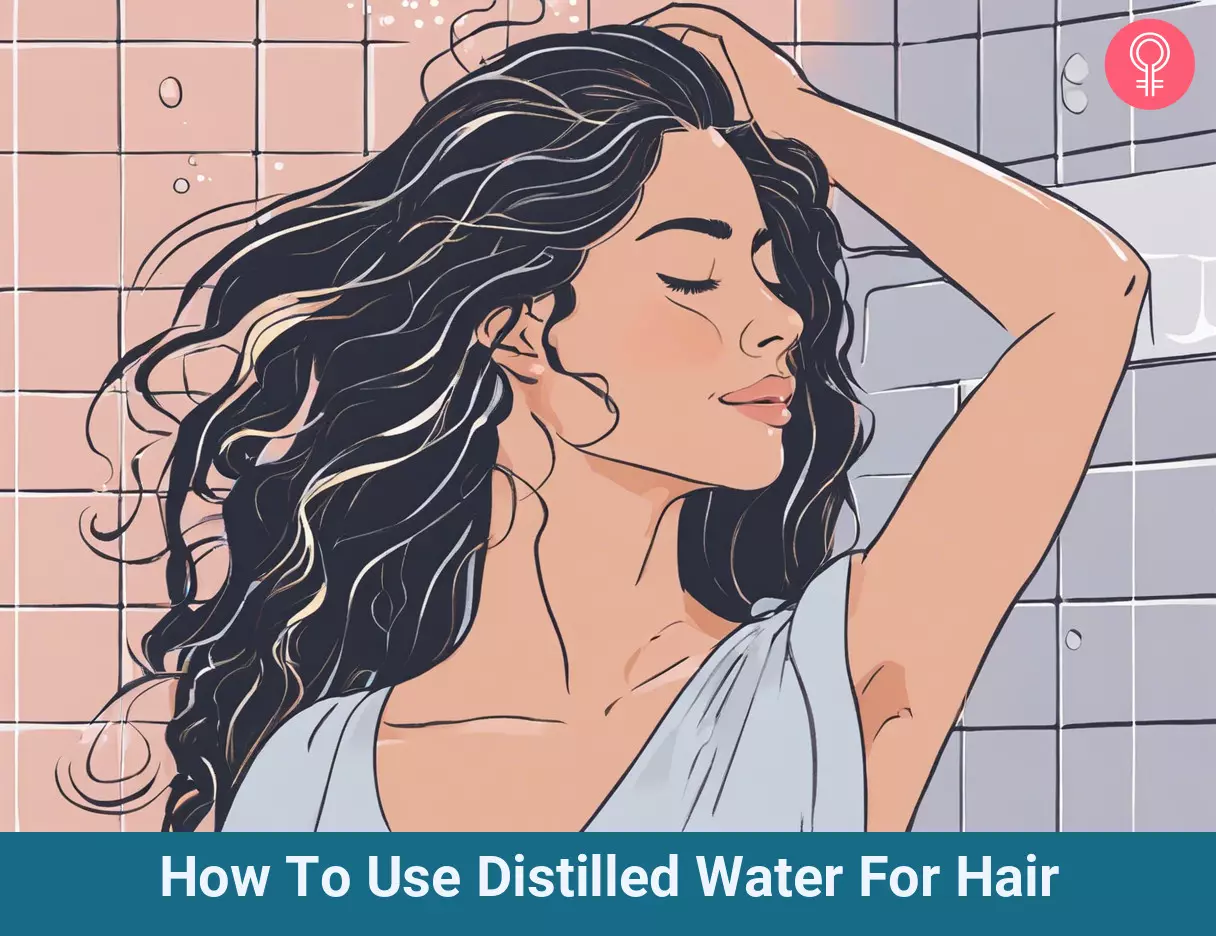
Image: Stable Diffusion/StyleCraze Design Team
Delve into the magical benefits of distilled water through a personal story in this captivating video. Discover its unique properties and how they can enhance your hair health. Watch now!
Personal Experience: Source
StyleCraze's articles are interwoven with authentic personal narratives that provide depth and resonance to our content. Below are the sources of the personal accounts referenced in this article.
i. How Should I Wash My Hair?;
https://2informu.wordpress.com/2015/09/10/how-should-i-wash-my-hair/
References
Articles on StyleCraze are backed by verified information from peer-reviewed and academic research papers, reputed organizations, research institutions, and medical associations to ensure accuracy and relevance. Read our editorial policy to learn more.
- Scanning electron microscopy of hair treated in hard water, https://pubmed.ncbi.nlm.nih.gov/26711619/
- Effect of topical application of hard water in weakening of hair in men, https://pubmed.ncbi.nlm.nih.gov/27654734/
- Effects of Hard Water on Hair, https://www.ncbi.nlm.nih.gov/pmc/articles/PMC3927171/
Read full bio of Madison Dufour
Read full bio of Ramona Sinha
Read full bio of Medha Deb





